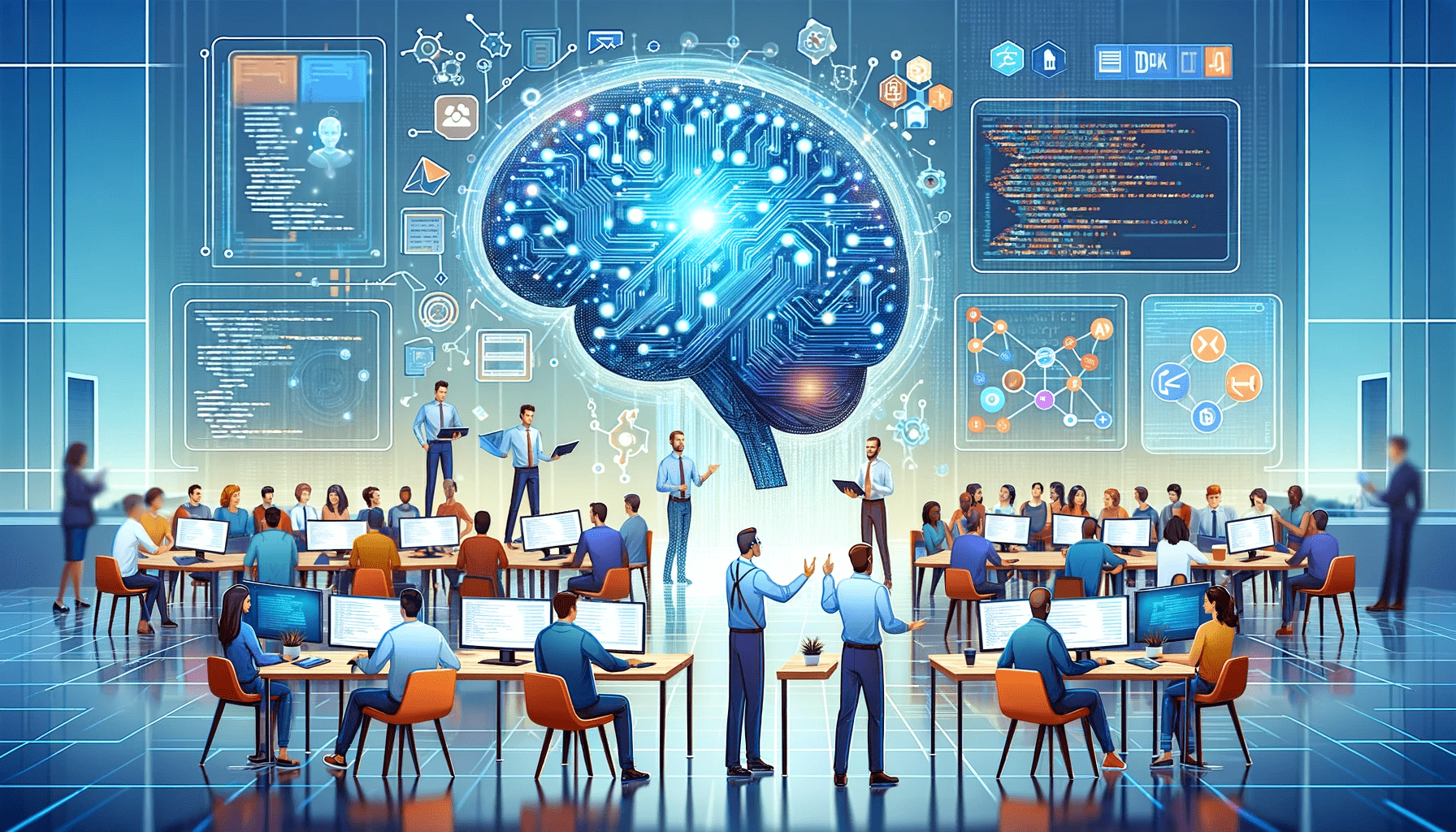In the dynamic world of software development and operations, DevOps teams are constantly seeking ways to enhance efficiency and innovation. One transformative approach is leveraging the power of artificial intelligence (AI). But how can a DevOps team take advantage of artificial intelligence? By integrating AI into their workflows, DevOps can automate tasks, predict outcomes, and streamline processes like never before. This integration leads to faster deployments, improved reliability, and the ability to anticipate and mitigate issues before they impact the user experience. Embracing AI is not just about keeping up with the trends; it’s about staying ahead in a competitive landscape where every second and every transaction counts.
Table of Contents
Introduction
The integration of artificial intelligence into DevOps, often termed as AIOps, is revolutionizing how teams manage software development and infrastructure. By harnessing AI, DevOps can automate mundane tasks, predict system failures, and offer insights that drive strategic decision-making. But exactly how can a DevOps team take advantage of artificial intelligence? This article will explore the various ways AI can be woven into the DevOps fabric to enhance performance, reliability, and speed in the software delivery process.
Understanding AI in the DevOps Landscape
Artificial intelligence has become a game-changer in the realm of DevOps. Its ability to process vast amounts of data at lightning speed allows teams to identify patterns, predict issues, and automate complex workflows. Here’s how DevOps teams can harness AI:
- Continuous Integration/Continuous Deployment (CI/CD): AI can enhance CI/CD pipelines by automating code reviews and optimizing build processes.
- Testing: AI-powered testing tools can automatically detect and rectify errors, speeding up the QA process.
- Security: AI can proactively identify security vulnerabilities, ensuring software is robust against threats.
By integrating AI into these areas, DevOps teams can not only improve efficiency but also create more reliable and secure products.
Automating the Pipeline with AI
One of the key benefits of AI in DevOps is the automation of the software delivery pipeline. AI tools can be trained to automate:
- Code integration and deployment processes, reducing manual effort and errors.
- Resource management, by dynamically allocating or deallocating resources based on demand.
- Incident management, by identifying and resolving issues without human intervention.
This automation leads to a more agile and responsive DevOps practice, allowing teams to focus on innovation rather than routine tasks.
Enhanced Monitoring and Predictive Analytics
AI elevates monitoring and analytics to new heights. DevOps teams can take advantage of AI-powered tools to:
- Monitor applications and infrastructure in real-time, detecting anomalies that could indicate potential issues.
- Analyze historical data to predict and prevent future system failures or performance bottlenecks.
- Optimize system performance by using AI to analyze and adjust configurations automatically.
Such predictive capabilities can drastically reduce downtime and improve user satisfaction.
AI-Driven Decision Making and Efficiency
AI’s ability to analyze complex data sets can lead to more informed decision-making. DevOps teams can leverage AI to:
- Assess the impact of new features or updates before they are deployed.
- Make data-driven decisions on when to scale resources.
- Identify the most efficient workflows and processes through AI analysis.
This intelligent decision-making process ensures that DevOps practices are both efficient and effective.
Fostering Collaboration with AI Tools
AI can also play a pivotal role in enhancing collaboration within DevOps teams. AI-enabled collaboration tools can:
- Automate communication flows, ensuring that the right information reaches the right team members at the right time.
- Facilitate knowledge sharing by organizing and surfacing relevant information from past projects and discussions.
- Improve project management by predicting timelines and identifying potential roadblocks.
Such tools not only streamline collaboration but also foster a culture of continuous learning and improvement.
Conclusion
As we’ve explored, there are numerous ways how a DevOps team can take advantage of artificial intelligence. From automating the pipeline and enhancing monitoring with predictive analytics to driving efficient decision-making and fostering collaboration, AI is a powerful ally in the DevOps journey. By embracing AI, DevOps teams can not only improve their workflows but also deliver better software, faster and with greater reliability. The future of DevOps is undeniably intertwined with the advancements in AI, and those who leverage this synergy will lead the pack in innovation and operational excellence.

Leave a Reply